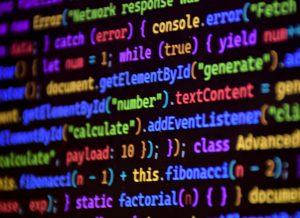How Blockchain Smart Contracts Streamline Legal Processes
In recent years, the rise of blockchain technology has revolutionized various industries and processes. One area that has seen immense benefits from blockchain is the legal industry, with the introduction of smart contracts. These self-executing agreements, built on the blockchain, have drastically streamlined legal processes by providing an efficient, transparent, and secure way of managing contracts. In this article, we will delve deeper into the topic of how blockchain smart contracts streamline legal processes and its potential impact on the legal landscape.
The Challenge with Traditional Legal Processes
Before we jump into the benefits of using smart contracts in the legal industry, it is crucial to understand the challenges faced by traditional legal processes. The traditional way of creating, verifying, and executing contracts is a time-consuming and resource-intensive process. It involves multiple parties, lawyers, and intermediaries, resulting in delays, errors, and high costs.
The lack of transparency and traceability in traditional contracts is another significant concern. The parties involved have to trust each other, and any disputes arising from the contract can be difficult to resolve, resulting in potential legal battles. This inefficiency and lack of trust have been a longstanding issue in the legal industry, hindering its growth and potential.
The Power of Blockchain Smart Contracts
Blockchain smart contracts provide a solution to the challenges faced by traditional legal processes. These self-executing and immutable contracts are built using blockchain technology, making them more efficient, secure, and transparent. The code of the contract is embedded in the blockchain, and once the predetermined conditions are met, the contract is automatically executed, leaving no room for disputes.
To understand the power of blockchain smart contracts, let’s look at an example. In traditional real estate transactions, multiple intermediaries, such as lawyers, banks, and title companies, are involved. Each party has to verify the authenticity of the property title, transfer funds, and process the paperwork, resulting in a lengthy and costly process. With blockchain smart contracts, the entire process can be automated, reducing the time and costs significantly.
Streamlining Legal Processes
Efficiency and Cost Savings
Blockchain smart contracts bring efficiency and cost savings to legal processes in various ways. Firstly, the process of drafting and verifying contracts is automated, eliminating the need for lawyers and intermediaries. This not only saves time but also reduces costs. Additionally, since the contract is stored on the blockchain, there is no need for physical paperwork, making the process more environmentally friendly.
Furthermore, smart contracts can be easily replicated and reused for similar transactions, reducing the need to create new contracts from scratch. This streamlines the process and reduces the risk of errors and disputes.
Transparency and Security
The blockchain’s immutability and decentralized nature provide a transparent and secure platform for legal transactions. Unlike traditional contracts, where each party has to trust the other, smart contracts are tamper-proof and cannot be altered, ensuring a high level of trust between the parties involved.
Additionally, the use of cryptography in smart contracts ensures the confidentiality of the contract, protecting sensitive information from being accessed by unauthorized parties. This added layer of security is crucial, especially in sensitive legal transactions.
Automated Dispute Resolution
One of the most significant advantages of blockchain smart contracts is the ability to automate dispute resolution. In traditional contracts, disputes can be time-consuming, costly, and frustrating for all parties involved. With smart contracts, any potential disputes are resolved automatically based on the predetermined conditions in the contract. This not only saves time and costs but also minimizes the risk of human error or bias in dispute resolution.
The Impact on the Legal Landscape
The use of blockchain technology and smart contracts is slowly transforming the legal industry. It is streamlining processes, reducing costs, and increasing efficiency and transparency. This digital transformation is not only beneficial for lawyers, but also for clients, who can save time and resources by using smart contracts. With the increasing adoption and advancements in blockchain technology, we can expect to see more innovations in the legal industry and a shift towards more efficient and secure ways of managing contracts.
Conclusion
In conclusion, blockchain smart contracts are a game-changer in the legal industry. By streamlining legal processes through efficiency, transparency, and automation, smart contracts provide a robust platform for managing contracts securely and cost-effectively. As the technology continues to evolve, we can expect to see more widespread adoption of smart contracts, leading to a more efficient and transparent legal landscape.










